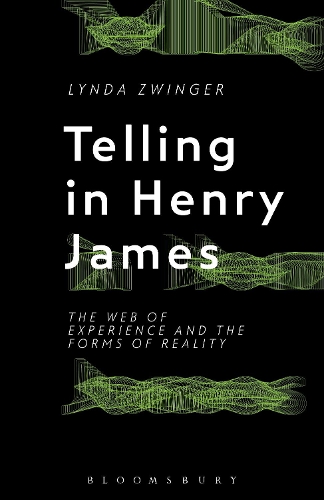
Telling in Henry James: The Web of Experience and the Forms of Reality
(Paperback)
Available Formats
Publishing Details
Telling in Henry James: The Web of Experience and the Forms of Reality
By (Author) Professor Lynda Zwinger
Bloomsbury Publishing PLC
Bloomsbury Academic USA
23rd March 2017
United States
Classifications
Tertiary Education
Non Fiction
Literary studies: c 1800 to c 1900
813.4
Physical Properties
Paperback
152
Width 140mm, Height 216mm
181g
Description
Telling in Henry James argues that James's contribution to narrative and narrative theories is a lifelong exploration of how to "tell," but not, as Douglas has it in "The Turn of the Screw" in any "literal, vulgar way." James's fiction offers multiple, and often contradictory, reading (in)directions. Zwingers overarching contention is that the telling detail is that which cannot be accounted for with any single critical or theoretical lensthat reading James is in some real sense a reading of the disquietingly inassimilable "fictional machinery." The analyses offered by each of the six chapters are grounded in close reading and focused on oddmentstextual equivalents to the particles James describes as caught in a silken spider web, in a famous analogy used in The Art of Fiction to describe the kind of consciousness James wants his fiction to present to the reader. Telling in Henry James attends to the sheer fun of Jamess wit and verbal dexterity, to the cognitive tune-up offered by the complexities and nuances of his precise and rhythmic syntax, and to the complex and contradictory contrapuntal impact of the language on the page, tongue, and ear.
Reviews
Zwinger's provocative ... prose underscores her insistence that "reading" James (as opposed to "code-cracking") is "messy, layered, distracted, peripatetic", and her own ransacking analysis uncovers much to admire and be grateful for. * Times Literary Supplement *
Offering a compellingly rich analysis of James's theory of the novel, Zwinger reads the writers acts of 'telling' in the sharply focused style that James devoted to jokes, perverse claims, and 'dirt' in general. By this last term especially, Zwinger demonstrates how Jamess language implies something unconscious or unspoken, even as he insists on the authorial ability to tell them. A remarkable read! * Dale Bauer, Professor of English, University of Illinois, USA *
In a series of skillfully rendered, implacably unruly readings, Lynda Zwinger reads Henry James as the reader James hoped for: a field of awareness as finely spun as a spiderweb suspended without any purpose other than a full openness to the pervasive presence of what might otherwise be lost beyond telling. * Donald E. Pease, Ted and Helen Geisel Third Century Professor in the Humanities and Professor of English and Comparative Literature, Dartmouth College, USA *
Author Bio
Lynda Zwinger is Professor of English at the University of Arizona, USA, and Editor of Arizona Quarterly. She is editor, with Patrick ODonnell, of Approaches to Teaching Faulkners As I Lay Dying and author of Daughters, Fathers, and the Novel: The Sentimental Romance of Heterosexuality.
